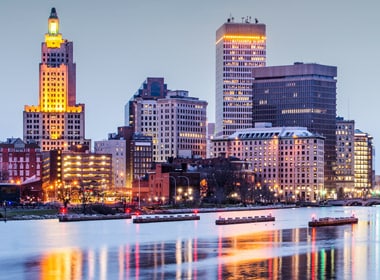Everyone was so shocked when Donald Trump was elected President of the United States that speculation ran high as to what he might do as President regarding online gambling. The speculation ran from Mr. Trump “allowing” online gambling throughout the US to his making online gambling illegal in states where it was already legal in part, notably New Jersey.
Not President Yet
The speculation reached a fever pitch way back in December of 2016 and early January of 2017. At the time, Trump had not yet been sworn in as President; that took place on January 2, 2017, approximately two months after his historic electoral victory.

The Role of the President and the States
The speculation regarding the new President’s possible action regarding online gambling was almost entirely misplaced because of a fundamental misunderstanding of the American law-making system. In short, the President does not make laws. He executes the law after it has been made by Congress. The President can try to influence Congress and must also approve a new law formally in order for the law to take effect but the President does not make the actual law.
The United States also comprises 50 states, each with its own Congress and each with its own set of laws.
So President Trump has no authority to change existing State law regarding online gambling or anything else for that matter.
So, despite the big hysteria that was created by the surprise election of Donald Trump as US President and the ongoing opposition to him, there has been no news to report about online gambling in the United States for the past year, until now.
Pennsylvania Rocks the Gambling World
The big news from the last two months involves two states, one large one and one very small. The large one, Pennsylvania, has already legalized online gambling. The small one, Rhode Island, just announced that it is considering doing the same.
Pennsylvania is a large state with two of the nation’s largest cities, Philadelphia and Pittsburgh. The population of the Philadelphia area is greater than 7,000,000 and the Pittsburgh area houses a bit over 2,000,000 people. The combined nine million people in these two urban areas are 70% of the state’s about 13,000,000 people.
In Pennsylvania, the state Congress passed a law in October that addressed gambling in the state in far-reaching ways. There has been land based casino gambling in Pennsylvania for some time. The growth of land based casinos in the United States indicates how allowing online gambling will affect neighboring states.
Nevada, New Jersey and Others
There was a time when only Nevada allowed land based casino gambling. Then several decades ago, New Jersey legalized land based casino gambling. The status qui didn’t last long. Pressure began building on neighboring states to allow land based casinos as a way to bring in tourists and to stem the outflow of local money to either Nevada a or New Jersey. Today almost every state has land based casinos.
Legalizing online gambling in Pennsylvania will put pressure on the other large states that border on the big state. These are primarily New York and Ohio. Neither of these states would be happy to see potential online gambling taxes and license fees go to Pennsylvania.
Why Do People Oppose Gambling?
The opposition to land based casinos always cited the less than savory type of people who were attracted to the areas where the casinos were located. This opposition succeeded in slowing the spread of land based casinos but could not stop the eventual legalization of land based casinos throughout the 50 states.
Online Gambling is Different
Opposition to online casino gambling doesn’t have the sometimes legitimate complaint of increased crime and an influx of unsavory people so opposition to online gambling comes primarily from three other sources. The first is primarily religious. It states that gambling is antagonistic to the proper behavior of religious people. Religious Christians, Jews, and Muslims all agree on this point.
The second opposition is the mirror image of the first: that even non-religious people can agree that gambling online or otherwise damages the public by appealing to people’s baser natures. This approach brought about Prohibition, a 13 year experiment in the United States from 1920 to 1933 during which the manufacturing, transport, distribution, or sale of alcoholic beverages was prohibited in all of the then 48 United States.
The experiment failed horribly. People who ostensibly agreed that alcohol led many people to bad behavior nevertheless frequented many illegal places where they could imbibe. The demand for alcohol brought in its wake organized crime. So Americans are unlikely to ever again agree to such a drastic and draconian imposition of government prohibition on what are now considered to be personal vices.
The third opposition comes from all the business interests that would be “harmed” by the legalization of online casino gambling. This includes land based casinos, race tracks, dog tracks, lotteries, bingo halls and he like. Americans can see through the self-interest that motivates such opposition.
Likelihood of a Snowball Effect
As Pennsylvania has already legalized online gambling, the pressure will now fall on Ohio, Michigan, New York, and Virginia, border states that were once manufacturing centers but have fallen on hard times. Pennsylvania, Ohio, and Michigan especially surprised everyone by voting for Donald Trump.
States Moving Forward
So, while Donald Trump may not have the power or authority to pass laws, especially state laws, he does have the influence of his great office to try to influence laws. A full year into his Presidency, Donald Trump has yet to make a definitive declaration as to where he stands on this issue and the states are no longer waiting for him to decide. The states are forging ahead with plans to make online casino gambling a fact of life in the United States.





